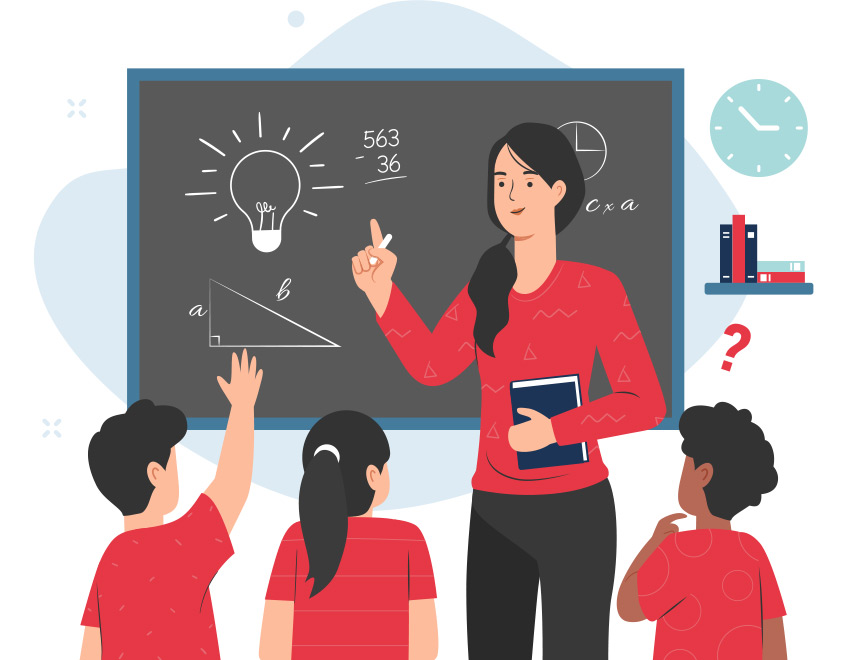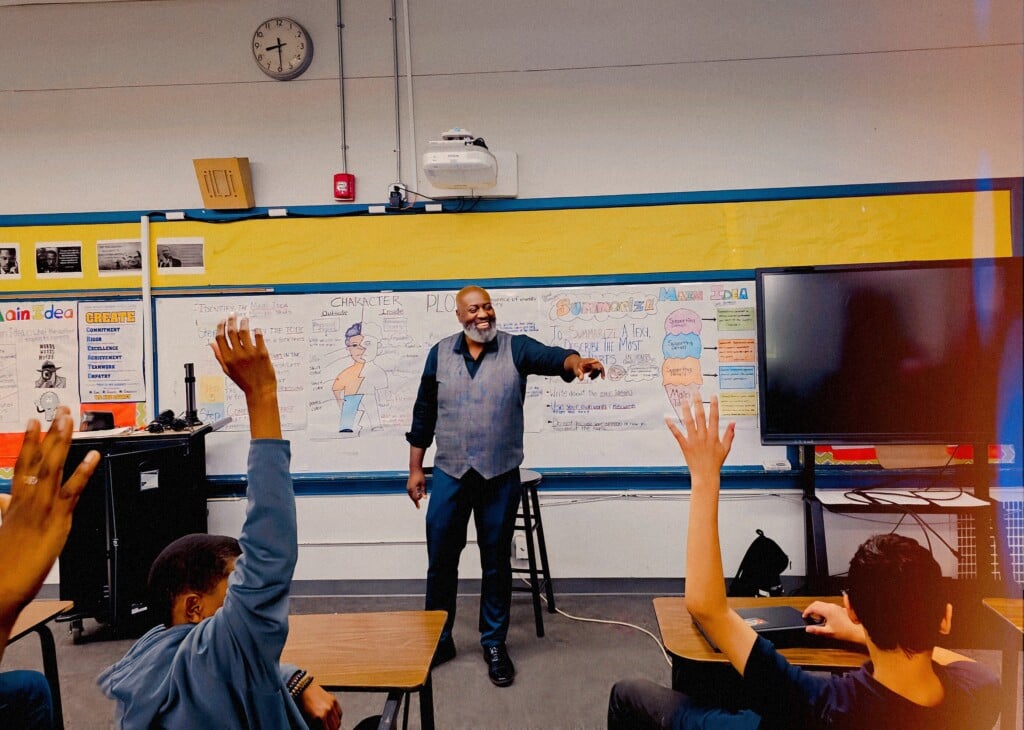Expert Tutors Offering Primary Science Tuition Singapore for All Grades
Expert Tutors Offering Primary Science Tuition Singapore for All Grades
Blog Article
Checking Out the Various Training Techniques in Key Scientific Research Education And Learning Today
Inquiry-based knowing, hands-on experiments, and the combination of innovation are redefining exactly how teachers involve young minds. In addition, joint approaches and set apart guideline are being utilized to provide to the diverse needs of trainees, enhancing both involvement and understanding.
Inquiry-Based Understanding
Inquiry-Based Understanding (IBL) is an instructional strategy that urges pupils to check out clinical concepts through doubting, investigation, and hands-on trial and error. This method stresses the role of students as energetic participants in their discovering, advertising vital reasoning and analytical skills. By engaging with real-world concerns, pupils end up being curious and motivated, which improves their understanding of scientific concepts.
In IBL, instructors serve as facilitators, leading pupils as they navigate their questions instead of providing information straight. This student-centered approach permits differentiation, suiting numerous discovering styles and paces. Trainees develop abilities in developing theories, developing experiments, and analyzing information, which are crucial for clinical proficiency.
In addition, IBL promotes cooperation amongst trainees, urging them to share searchings for and concepts. This cumulative query advertises social skills and a feeling of community within the classroom. The process of query urges durability, as students learn to welcome failure as a tipping stone towards understanding.
Hands-On Experiments
Hands-on experiments are a crucial component of reliable science education, enhancing the concepts of inquiry-based knowing. These experiments allow trainees to involve straight with scientific principles, promoting a deeper understanding with experiential understanding. By adjusting materials and observing outcomes, young learners can realize abstract concepts in concrete ways.
Such tasks promote important reasoning and analytical skills, as pupils hypothesize results, conduct experiments, and evaluate outcomes. This process encourages them to ask inquiries, fine-tune their understanding, and develop a clinical attitude. Additionally, hands-on experiments can be tailored to varied knowing styles, guaranteeing that all trainees have the opportunity to involve meaningfully with the material.
Furthermore, hands-on experiments often urge partnership amongst peers, advertising synergy and communication skills. Working in teams allows students to share concepts, talk about searchings for, and pick up from each other, which enhances their overall instructional experience.
Integrating hands-on experiments into the main scientific research educational program not only enhances the finding out setting however also grows a long-lasting rate of interest in science. By actively getting involved in their education, students are most likely to develop a passion for clinical query that expands beyond the class.

Innovation Integration
Incorporating innovation right into key science education has come to be progressively vital in fostering pupil engagement and enhancing discovering results. Making use of electronic tools, such as interactive simulations, virtual labs, and instructional software application, supplies students with possibilities to check out scientific principles in cutting-edge ways. These resources promote a much deeper understanding of complex subjects by allowing learners to imagine and manipulate variables that would be impractical in a standard classroom setting.
In addition, technology integration motivates customized learning experiences. Pupils can progress at their very own speed, reviewing difficult principles with multimedia sources, which accommodate different learning styles. This flexibility not only supports individual development but also cultivates a sense of autonomy in learners.
Additionally, innovation works as a bridge to real-world science, connecting trainees with existing study and professional payments. Accessibility to clinical journals and online data sources widens students' perspectives on scientific query and promotes vital believing abilities.
Collaborative Understanding
Collaborative discovering plays a vital role in main scientific research education by fostering team effort and interaction abilities among pupils. This approach urges learners to interact, share knowledge, and take part in analytical, which enhances their understanding of scientific principles. By taking part in team activities, trainees discover to verbalize their ideas, listen to diverse point of views, and bargain remedies, every one of which are essential abilities in both scholastic and real-world contexts.

Research indicates that collective discovering can bring about boosted motivation and interaction in scientific research subjects, as pupils locate pleasure in common experiences (primary science tuition Singapore). In addition, this method prepares trainees for future joint undertakings, outfitting them with the skills required for reliable team effort in college and expert environments. Ultimately, welcoming joint knowing in key science education and learning can significantly enhance the discovering experience and advertise a much deeper understanding of scientific questions
Differentiated Direction

Set apart guideline can show up in numerous methods, such as differing the content, processes, or products of knowing. As an example, educators may utilize tiered tasks that provide varying levels of intricacy, permitting pupils to function at their respective preparedness levels. check In addition, flexible organizing approaches can help with collaboration among trainees with different capabilities, promoting peer discovering.
Assessment plays a critical function in this method, as it educates direction and assists educators understand each student's one-of-a-kind requirements. Developmental analyses, such as monitorings and quizzes, can direct instructors in readjusting their techniques to improve discovering end results. primary science tuition Singapore. Eventually, by applying distinguished instruction in primary science education, teachers can grow an extra equitable and efficient discovering atmosphere, equipping all trainees to reach their full possibility in recognizing scientific phenomena
Conclusion
In recap, the varied mentor techniques in primary science education and learning, including inquiry-based knowing, hands-on experiments, innovation assimilation, collective knowing, and distinguished guideline, jointly add to a much more effective understanding atmosphere. These methods advertise important thinking, problem-solving abilities, and a deeper understanding of scientific ideas. By implementing these approaches, educators can develop helpful and appealing classrooms that resolve the varied demands of students, ultimately promoting a long-lasting interest in scientific research and enhancing scholastic success.
Inquiry-Based Discovering (IBL) is an instructional strategy that urges pupils to discover clinical ideas via doubting, investigation, and hands-on testing.Collaborative discovering plays a vital function in main scientific research education and learning by cultivating team effort and interaction abilities among trainees.Research indicates that collaborative learning can lead to enhanced inspiration and interaction in scientific research subjects, as students discover pleasure in common experiences.In cultivating an inclusive discovering setting, differentiated direction emerges as a crucial approach to suit the diverse demands and abilities of students in primary science education. Eventually, by applying differentiated instruction in primary science education and learning, instructors can grow an extra fair and reliable learning atmosphere, equipping all students look at here now to reach their full potential in understanding scientific phenomena.
Report this page